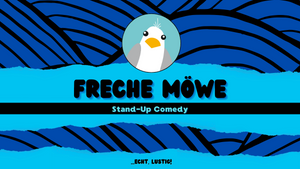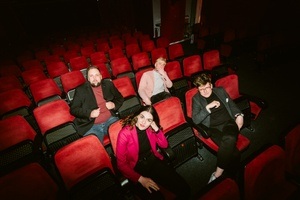Queere KI und Wikipedia
In the organizer's words:
What does "queer" mean, how intelligent is AI, and what is "queer AI"?
In this conversation, we discuss the development of artificial intelligence, the technological reproduction of social stereotypes and queer strategies.
AI can only ever generate knowledge that lies in the data available to it. If the data depicts sexist, racist or ableist stereotypes, then these discriminatory identity markers are set as the norm using AI. This is because AI is neither neutral nor ahistorical, but has emerged from and is embedded in the power relations of our society.
As a huge online encyclopaedia, Wikipedia has a reciprocal relationship with AI. On the one hand, Wikipedia as a public data source is a supplier for AI systems; on the other hand, Wikipedia uses AI to improve articles and detect spam. Since Wikipedia and other public data sets on the Internet suffer from a gender and diversity gap despite efforts, AI trained in this way reproduces certain biases such as dominant anti-feminist, heteronormative or otherwise stereotyping discourses on the Internet.
Together we want to discuss how knowledge production is negotiated between AI, human and technical actors, what AI-generated facts are and what role collective, collaborative and queer thinking can play in these contexts.
Round table talk with:
- Sara Morais dos Santos Bruss, cultural and media theorist, author and curator at Haus der Kulturen der Welt in Berlin. She works at the intersection of feminist and anti-colonial art, political practices, digital technologies and subjectivity. Sara is on the board of Diffrakt. Center for Theoretical Periphery and editor at kritisch-lesen.de. She is co-author of "Queere KI. On the coming-out of smart machines" (Transcript 2022)
- Lotte Warnsholdt is a cultural and media scientist and works as a research assistant at the German Maritime Museum, Leibniz Institute of Maritime History. Her research focuses on the cultural and media history of modernity, forms of critique in the digital realm and theories and practices of the archive. Co-editor of Critique and the Digital (Diaphanes, 2021) and author of Im Schatten des Schweigens. Cultural Techniques of Secrecy in Modernity (Transcript 2024).
- Wikipedians from FemNetz. FemNetz is a network of Wikipedians with feminist concerns. It aims to help promote a welcoming culture in Wikipedia and is committed to combating structural exclusions so that Wikipedia also becomes representative of people who are often not visible on Wikipedia pages or who are active themselves. FemNetz wants to sustainably increase the proportion of women writing and being represented on Wikipedia, as well as inter, trans and non-binary people, and stands up for anti-racist and multi-gender formulations.
Price information:
The Freiraum is accessible free of charge and visitors can pick up a free ticket and sticker at the ticket office.











